BBC Studios’ Ralph Lee on building a global content studio

Andy Fry22-02-2023
©C21Media
BBC Studios Productions CEO Ralph Lee outlines his priorities for the year ahead and the challenges to be faced, and picks out some programming highlights to look out for at the BBC Studios Showcase.
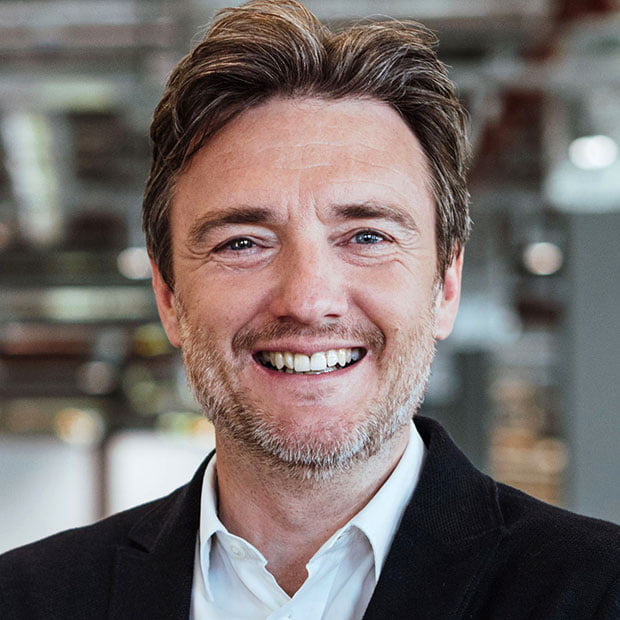
Ralph Lee
2022 was a landmark year for the UK’s BBC in more ways than one. At home, the public service side of the corporation celebrated 100 years of domestic broadcasting and said a silent prayer of thanks for the departure of its arch nemesis, culture secretary Nadine Dorries.
Internationally, it saw commercial subsidiary BBC Studios achieve its highest ever sales (£1.6bn/US$1.93bn) and profit (£226m), for the 21/22 financial year. With a total output of 2,400 hours, the division boasted a 56% uplift in production sales.
Ralph Lee, CEO of BBC Studios Productions, says: “2022 was a really significant year for BBC Studios. It demonstrated so many dimensions to our new business structure that I don’t think everyone in the media market has caught up with it.”
Citing an increasingly seamless relationship between BBC Studios’ production capabilities and its global distribution operation as a key strength, Lee identifies three key drivers of the company’s global growth strategy.
“Firstly, we have BBC Studios’ production units operating at full throttle, and then there is the amazing work coming out of [BBC Studios-backed] indie labels like Sid Gentle Films, House Productions, Clerkenwell Films, Moonage Pictures and Firebird Pictures, which we took control of in 2022. Finally, there are relationships with the likes of Louis Theroux’s Mindhouse, which we work with through a first-look deal.”
Translated into output, Lee says talent alliances led to “some outstanding work in 2022. From an impressive array of scripted titles to the coverage of events like the Queen’s funeral, the new model really worked at its full strength.
“Then there were projects like Prehistoric Planet, a collaboration with Jon Favreau for Apple TV+. That was proof, if we needed it, of the BBC Natural History Unit’s impact on the global stage. In a similar vein, I’d also single out the shift of Dancing With the Stars from a domestic US show on ABC to a global hit for Disney+. That feels like a real step change.”
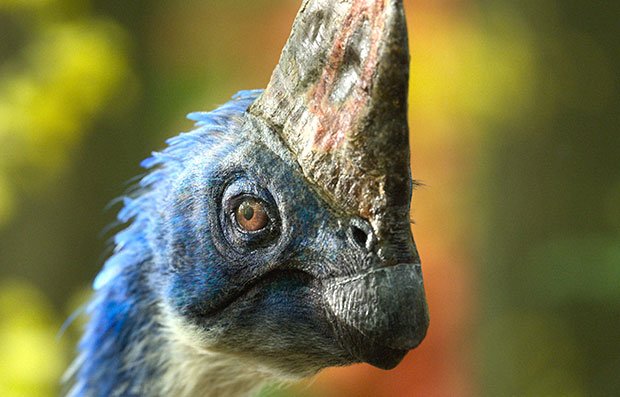
Prehistoric Planet is a collaboration with Hollywood director Jon Favreau for Apple TV+
Streamer commissions have been part of recent growth, with 75% of BBC Studios’ revenues currently coming from outside the BBC. Amazon, Apple, Disney+/Nat Geo, Netflix and Warner Bros Discovery are all cited by BBC Studios as high-value partners – as is Chinese platform MIGU.
“The BBC is still our single biggest customer but we’ve seen a lot of growth in producing for global platforms,” says Lee. “Another good illustration of this is the partnership we announced with Disney around Doctor Who.”
While 2022 was a banner year, there’s no room for Lee and his colleagues to rest on their laurels. At Mipcom, BBC Studios CEO Tom Fussell declared that the commercial ambition is to “double again in size in the next five years.”
Lee says it’s an ambitious goal but not unrealistic. Quizzed on how it’s going to happen, he adds: “First is organic growth. Many of our production units and partners have plenty of headroom for expansion. I’m thinking of companies like Mothership, which we took a 25% stake in last year. The Kids & Family division is also a nascent business for us. They’ve had hits like preschool animation Bluey, but they have ambitious plans to grow global production.”
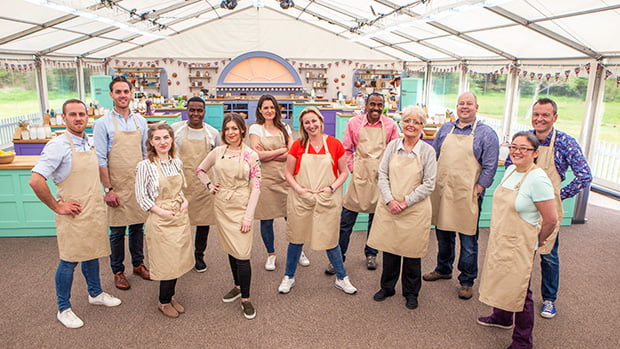
The Great British Bake Off is among BBC Studios’ big format hits
In addition, Lee says the company is gearing up to expand its production footprint. “We have bases in locations including the Nordics, India, Australia, South Africa, Germany, France and the US – but we are scoping out a few other markets where we want to be. That could be via acquiring established companies or starting from scratch.”
While it’s too early to name target markets, Lee says the ambition is to create a network of local prodcos that can adapt existing IP or create local originals.
“We tend to start new offices around non-scripted formats like Strictly Come Dancing or Bake Off, which we represent globally, then expand into scripted formats like Doctor Foster, which we produce in multiple markets; Luther, in India; Ghosts in the US; and The Wrong Mans in France. Eventually, when we have talented executives like Kylie Washington in Australia/New Zealand [as general manager and creative director for the region], they’re inevitably going to want to create their own original shows.”
An additional benefit of building a robust network is that it ceases to be a hub-and-spoke model, says Lee, where all ideas need to be centrally generated. “We had an interesting example of a format called Breaking Point, which was developed in one territory but first produced elsewhere, for RTL in Germany. This model will open up the potential for us to be producing more non-English-language original content.”
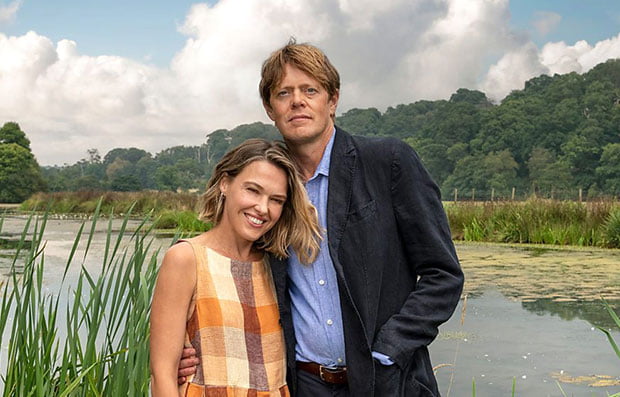
Death in Paradise spin-off Beyond Paradise
The Disney+ deal around Doctor Who also points to the potential for ambitious coproduction partnerships, adds Lee. “We work closely with Rebecca Glashow and Janet Brown, who are our leads in sales and distribution. They are brilliant at building partnerships, and the reboot of Doctor Who is an exciting example. That show has regeneration built into its DNA, so we’re looking forward to what happens when it benefits from the ambition we’ve seen recently in fantasy drama propositions.”
In a similar vein, Lee points to BBC Studios’ partnership with Nat Geo and filmmaker James Cameron on OceanXplorers; and Rain Dogs, a coproduction with HBO Max.
Of course, Fussell’s ambitious target needs to be delivered in the face of several looming challenges. A collapse in confidence among streamers, rampant inflation and the threat of a US writers’ strike all have the potential to cause problems for BBC Studios in the coming period. Lee is not unduly fazed, however.
“Without sounding cocky, we’ve lived through two years of Covid, so I think we can cope with a slowdown in the streamer market. The wider economic circumstances are challenging but we just need to batten down the hatches and look forward to the day it ends. It’s important to see the current situation in the context of a longer timeframe where we are living through an incredible age for investment in big ideas and content.”
Looking specifically at the BBC’s ability to navigate a slowing market, he adds: “One advantage we have is that we don’t have shareholders breathing down our neck, so we can take a longer view on things. And from a creative point of view, we’re recognised as having a strong offer for talent. When you look at the work being produced by the likes of James Graham [Sherwood], Sally Wainwright [Happy Valley], Steve Coogan [Alan Partridge] and Russell T Davies [Doctor Who], as well as on-screen talent like Daisy May Cooper [Rain Dogs] you see a robust model.”
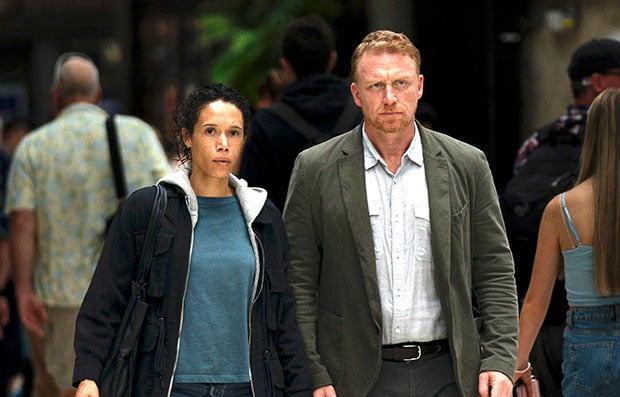
Six Four, a forthcoming ITV drama that BBC Studios is distributing internationally
A US writers’ strike would be a nuisance, especially as BBC Studios recently relocated chief creative officer Mark Linsey to LA “to grow BBC Studios’ commitment to the West Coast.” Again, Lee is phlegmatic, saying the company’s scale creates “an ability to flex according to where the opportunities are. A strike might present challenges for scripted, but it could be good for our distribution business, factual and formats.”
In terms of financial firepower, Lee says the ability to acquire companies and talent is aided by the UK government’s decision to allow the BBC to increase its commercial borrowing limit from £350m to £750m. “We still have to make careful judgements about what a new label might bring to the portfolio, but it does demonstrate that the opportunity to invest in companies, content and services is there for us.”
Looking ahead to a reinvented BBC Showcase, taking place in London next week, BBC Studios is greeting buyers with a wide range of shows across genres. Asked to single out a few highlights, Lee says he is excited by Six Four, a new drama produced by House for ITV that BBC Studios is distributing internationally. There’s also Beyond Paradise, a spin-off from long-running scripted series Death In Paradise, and the “mind blowing” Planet Earth III. Other factual landmarks on show at the event are Earth and Ancient Powers.
In terms of areas where BBC Studios could do better, Lee says: “The focus over the last four or five years has been on premium factual and scripted. So I would say there is work to do in format generation to feed our expanding network. Formats is a difficult market, but I think the success of The Traitors has given everyone a shot in the arm.”
Over the last decade, the BBC has often referenced ‘Britishness’ as a point of creative distinction. With BBC Studios reinventing itself as a global machine, does that moniker become obsolete? Lee thinks not: “We’re talking about Britishness with a small ‘b.’
“When I think about it, I’m not thinking about a red telephone box in the back of every shot, I’m thinking about the quality of BBC output and the way it empowers original writers like Emma Moran [Extraordinary] and Cash Carraway [Rain Dogs]. There’s a core to the BBC’s editorial values that runs through our content wherever we work.”








































